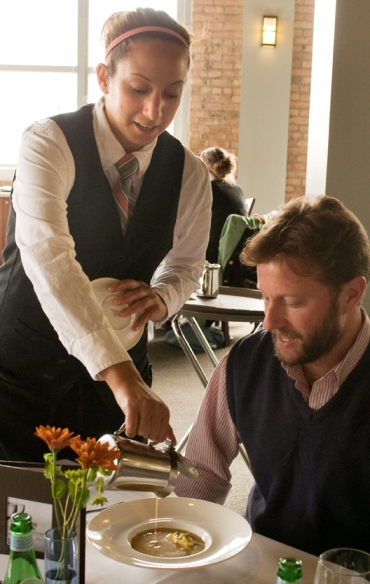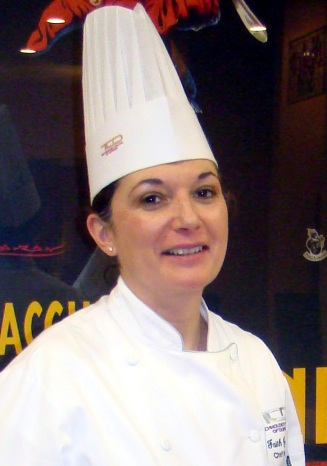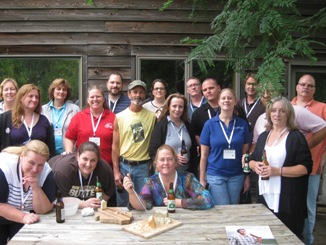Green Tomato: What Energy Waster Is Lurking in Your Kitchen?
Sunday, 31 October 2010 06:52By Christopher Koetke, CEC, CCE
 Turn-key teaching tools for sustainability.
Turn-key teaching tools for sustainability.
As chefs, when we talk about cost, the focus is usually food and labor. Sometimes we forget about energy and water because we figure it’s a cost of doing business that’s beyond our control. You’ve probably heard me talk about the topic before, but I wanted to share my recent conversation with Richard Young and Kong Sham from Food Service Technology Center (FSTC). An unbiased research laboratory, FSTC is based in California and funded by PG&E, a major utility. As part of their work for the utility, they go into the field and help operators by auditing their facilities and showing them how to decrease their energy and water use.

 The day of the frumpy, inattentive waiter is gone. In the current economy, properly training wait staff has never been more important.
The day of the frumpy, inattentive waiter is gone. In the current economy, properly training wait staff has never been more important. Don’t forget the most important part of the training process—helping students develop their critical-thinking and problem-solving skills.
Don’t forget the most important part of the training process—helping students develop their critical-thinking and problem-solving skills. Educator winners of the Wisconsin Milk Marketing Board’s 2010 healthy-cooking recipe contest through CAFÉ enjoyed a thorough and flavorful immersion in Wisconsin cheeses on tour.
Educator winners of the Wisconsin Milk Marketing Board’s 2010 healthy-cooking recipe contest through CAFÉ enjoyed a thorough and flavorful immersion in Wisconsin cheeses on tour. Online resources from the turkey industry will help students better understand how to deliver customer satisfaction while contributing to a healthy bottom line amid a “perfect storm” of challenges for operators.
Online resources from the turkey industry will help students better understand how to deliver customer satisfaction while contributing to a healthy bottom line amid a “perfect storm” of challenges for operators.